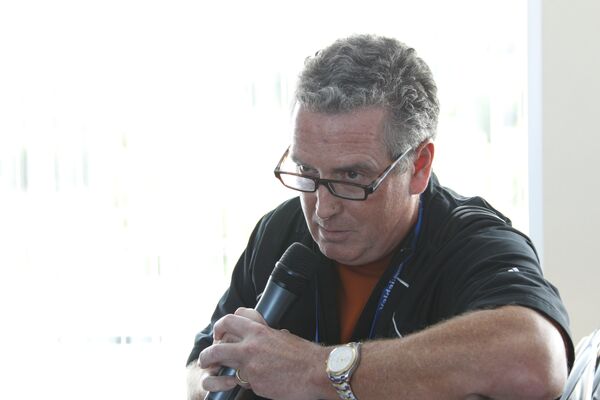Looking at Russian-US relations and the “reset”, what would you say are the main achievements?
Well, the main achievements are – one, of course, the signing of a new START treaty on April 20, 2010, and getting back in constructive and positive discussions about nuclear arms control and nuclear security. Two, the agreements for the transitive, lethal and non-lethal materials across Russia and over Russian air space, and the role that Russia has been playing in a Northern Distribution Network. It has been really important for the United States, as well as other cooperation, which we are engaged in Afghanistan, in trying, for example, to curtail drug-trafficking and other issues. Three, for sure, the cooperation on the United Nations Security Council on the sanctions on Iran. I think from the Obama administration standpoint Iran and Iranian nuclear weapons program is the number one priority in motivating them, I think, in the reset on the security side. So that has been very important. And maybe just as important or more important was the decision on Moscow’s part to cancel the sale of S-300 anti-air system. That is viewed very positively in Washington. Currently, I hope, we are going to have Russia’s WTO negotiations come to a close, and Russia will enter the World Trade Organization in December, at the next meeting. That would be a big achievement not only for US-Russia relations, but more broadly for Russia and also Russia’s engagement in global economy.
Do you expect that the relationships between the two countries will undergo drastic changes after 2012 elections in both countries?
I do not think they will undergo drastic changes after the 2012 elections in Russia. I think, that president Medvedev and prime-minister Putin are basically in agreement about the advisability of the, so called “reset” of the Russian-US relations that has taken place over the last nearly three years. I think the much bigger question mark is: what is going to happen in the US elections? If Barak Obama is reelected, then, I think, we will see basically continuation of the policy. From my point of view, the “reset” has been successful. The relationship has been reset. We have now more normal and constructive relationship with Russia, as we should have. I think, we are not going to have that momentum of watershed agreements, (and one of them I forgot to mention, of course, the Civilian Nuclear-1, -2, -3 agreement, which was concluded at the end of last year). Still I think trying to build on the levels of cooperation that we have would be the case with the Obama administration. Republican administration is a much bigger question mark.
Maybe it’s just pre-electoral games? Republicans have to play them, trying to undermine the Obama administration as much as possible.
Right, the Obama administration views the “reset” as one of the most important foreign policy achievements. Naturally, the opposition party is going to find ways to criticize that, to try to knock it down. When you come to actual governing, it’s a different matter.
But still there are problems in our relations. What do you think are the most cunning issues that we have to tackle first of all?
There is one other important area where we have seen a greater degree of cooperation and mutual understanding and, I think, accommodation of interests in the past couple of years that we did not see in the Bush administration. That is our views on what is taking place in the countries on Russia’s borders that many refer to as post-Soviet space. I’d like to get away from that terminology.
There is a possibility for the conflicts in the Russia-US relationships over our policies and interests in the Caucasus, in the Central Asia and elsewhere, and, of course, the biggest one is Georgia. The Obama administration has spent a lot of time during over the past three years, trying to insure that conflict is not reemerging in Georgia.
The two key goals in 2011 Valdai International Discussion Clubwere the WTO session on the economic side and missile defense on the security side. Things look much more positive for the WTO session issue (although we are not done yet), then they do on the missile defense. The missile defense issue will continue to be discussed and I am not sure we are going to see some rapid progress on that in 2012.
*Andrew C. Kuchins, Director and Senior Fellow, Russia and Eurasia Program, Center for Strategic and International Studies



